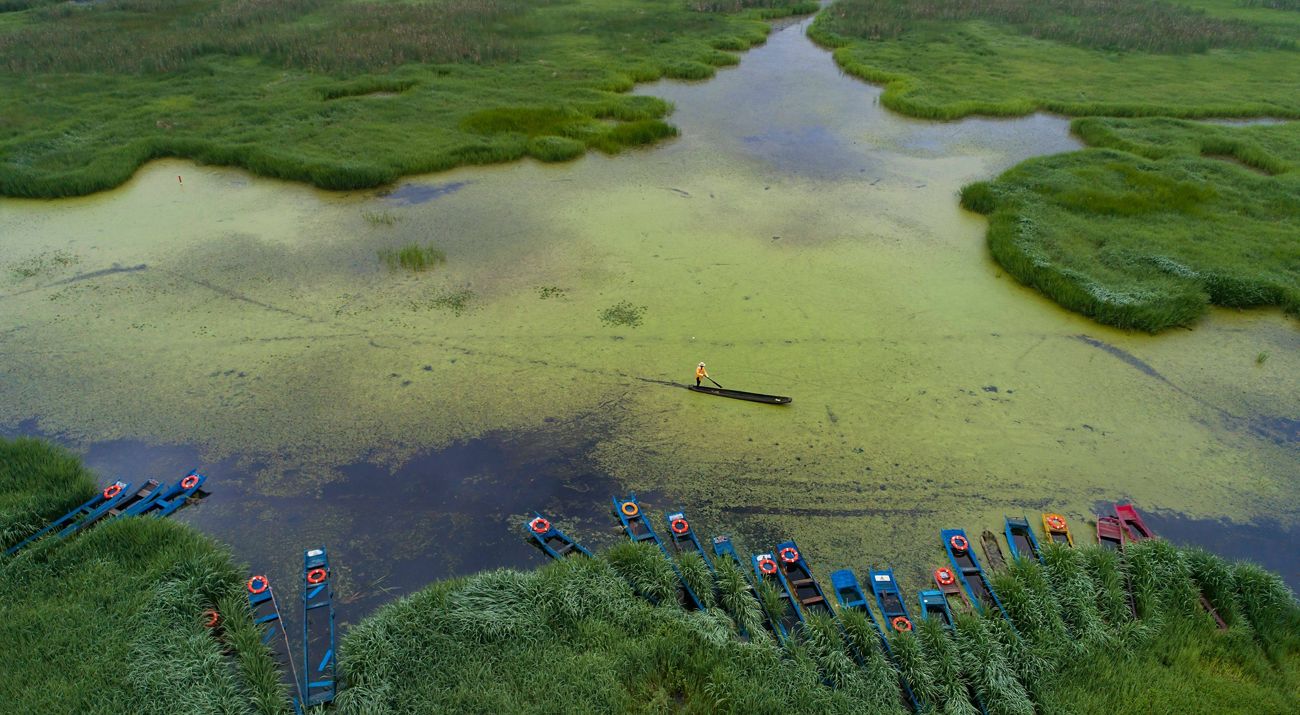Securing Freshwater in China
Since 2015, The Nature Conservancy in China has been working to protect and secure this precious resource for people and nature.
Support Our Work
TNC in China is taking bold new steps to achieve conservation at tremendous scale.
Donate NowFreshwater: Our Most Precious Resource
In China, the combination of a large population, rapid urbanization and rising economic growth is testing the ability of water catchments and rivers and their ecosystems to meet the needs of both people and nature. Working with our partners, The Nature Conservancy (TNC) is taking a multiple-prong approach to water conservation by working on river conservation and restoration, as well as working with water users in the city to pay for conservation of the upstream forests, wetlands and farmlands that regulate and filter their water.
Our freshwater projects include:
- Conducting a study to inform river-management policy in the face of climate change and biodiversity loss;
- Developing healthy-river management tools for knowledge sharing and lessons learning;
- Helping restoration and evaluation framework in key tributaries at the Upper Yangtze, and;
- Practicing water fund in Zhejiang to invest in nature-based solutions for water security and exploring scaling-up mechanisms.
Our freshwater work in China will contribute to TNC Asia Pacific's 2030 goals to ensure that 1 million kilometers of rivers and 30 million hectares of lakes and wetlands are protected, restored or benefiting from improved management.

Water Funds
Most water sources in China are under increasing pressure to meet the demand of rapidly growing cities. As a result, water quality faces great challenges.
From North America to Africa, TNC has extensive international experience building and advising on large-scale clean water projects. Leveraging this expertise, in 2016 we published the China Urban Water Blueprint, which analyzed the 135 surface water sources serving China's 30 largest and fastest-growing cities.
This research informed TNC's work to introduce water funds—governance and finance mechanisms that secure conservation funding for upstream land managers from downstream water users that results in a reduction of land-based pollution into the water supply. With our partners, we implement comprehensive conservation activities—including agricultural best management practices and riparian wetland restoration—and connect this work to downstream water users who provide sustainable funding and governance.

Project Highlight
Qiandao Lake Water Fund
In 2018, TNC partnered with Alibaba Foundation, Mingshengtonghui Charity Foundation and Wanxiang Trust on a large-scale conservation project at Qiandao Lake, which supplies drinking water for a population of 10 million people.
The goal is to reduce agricultural pollution in the surrounding areas and support improved water quality for Qiandao Lake within 10 years, which will benefit people in the Yangtze River Delta area. During the first three years (Stage I) of the Qiandao Lake Water Fund, TNC reduced chemicals used in rice field pilot sites by at least one-third, while increasing rice yield by 10 percent. The project was recognized as one of the Biodiversity 100+ Global Best Cases during the first phase of United Nations COP15 Convention on Biological Diversity in Kunming, China, 2021.
Learn more about the Qiandao Lake Water Fund here.



